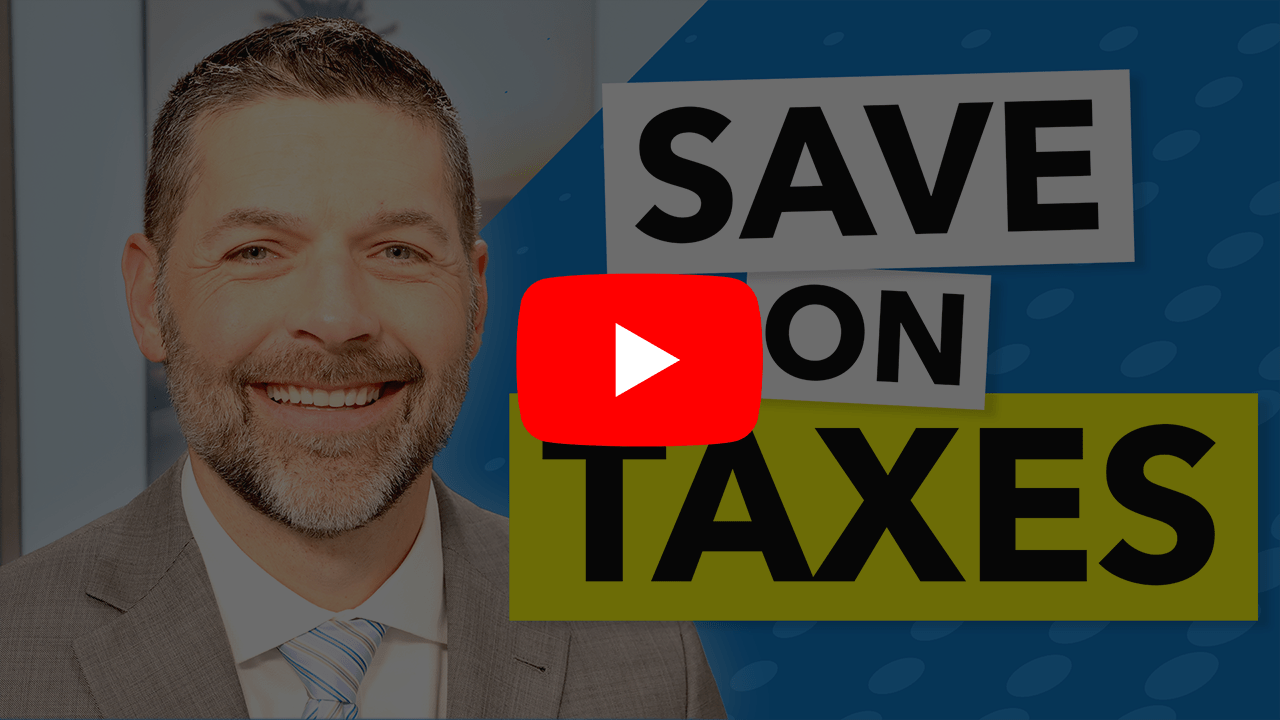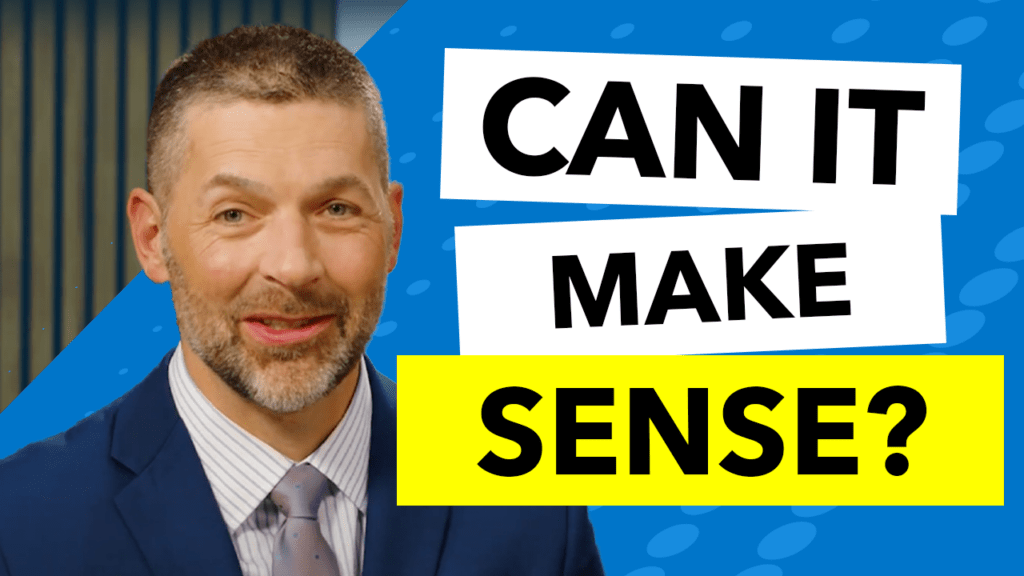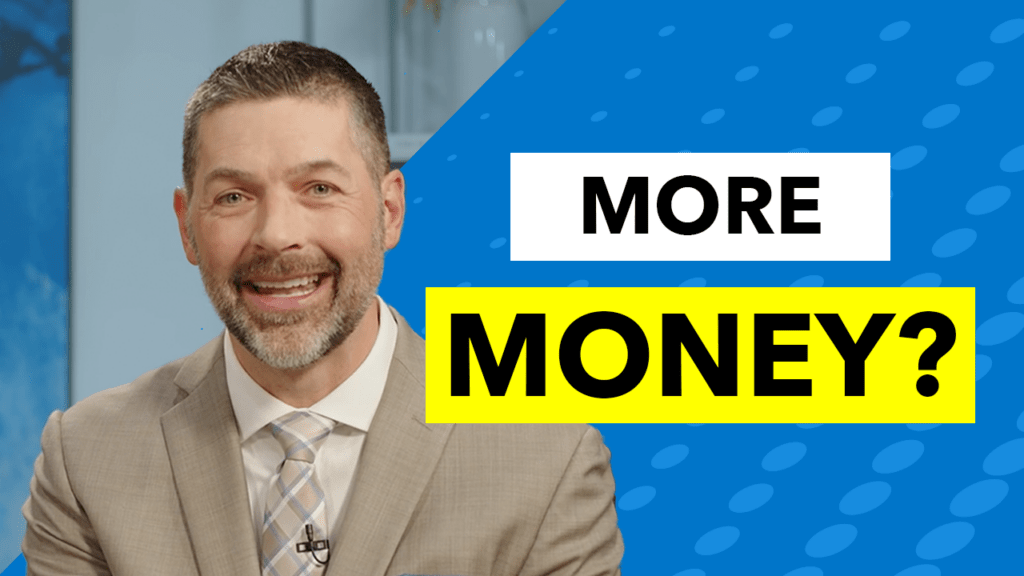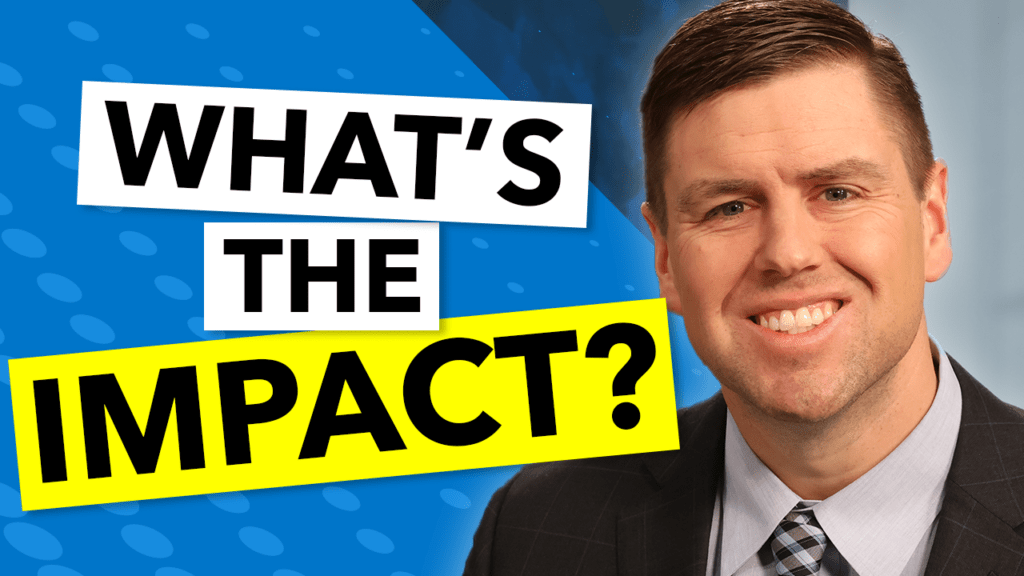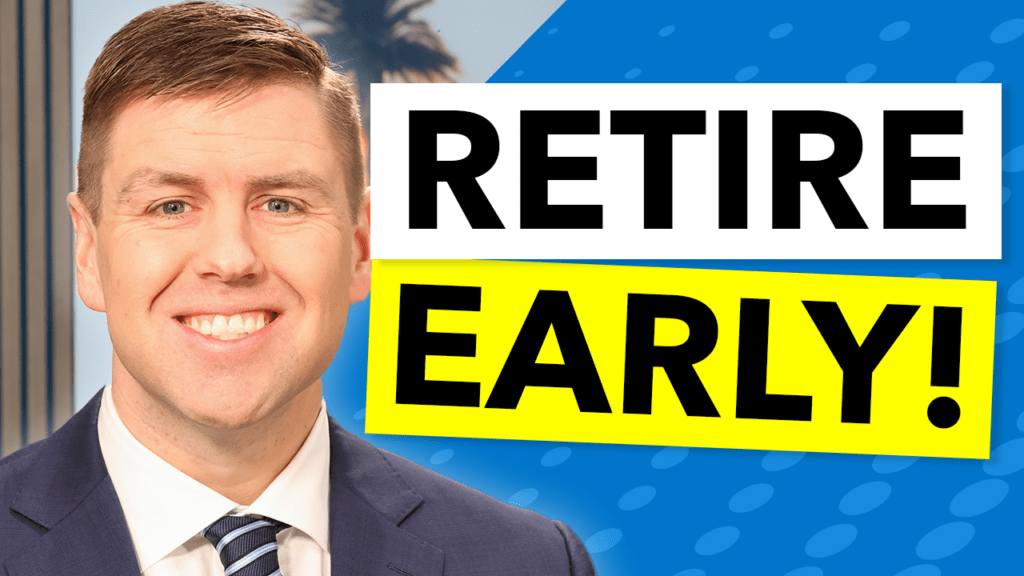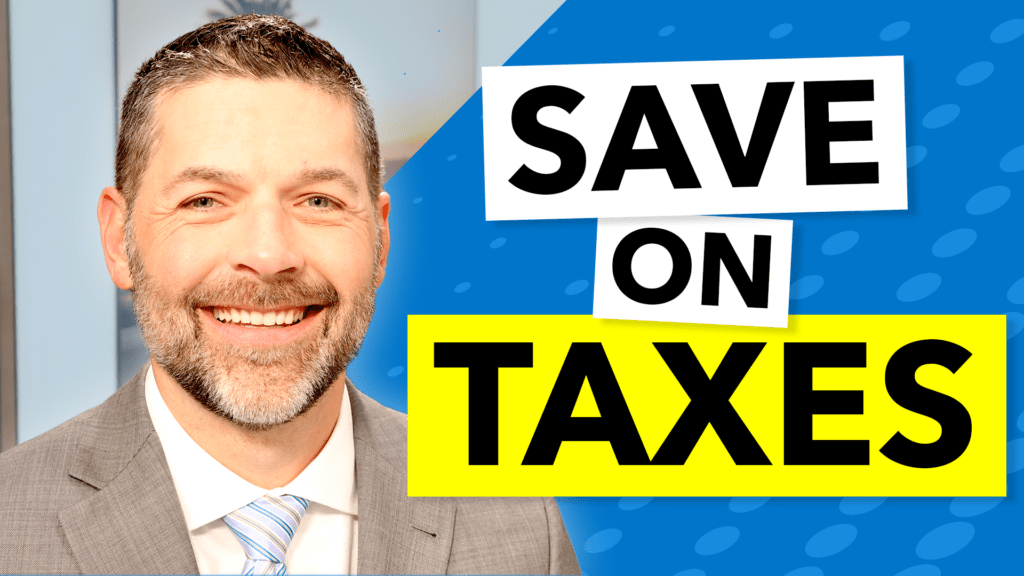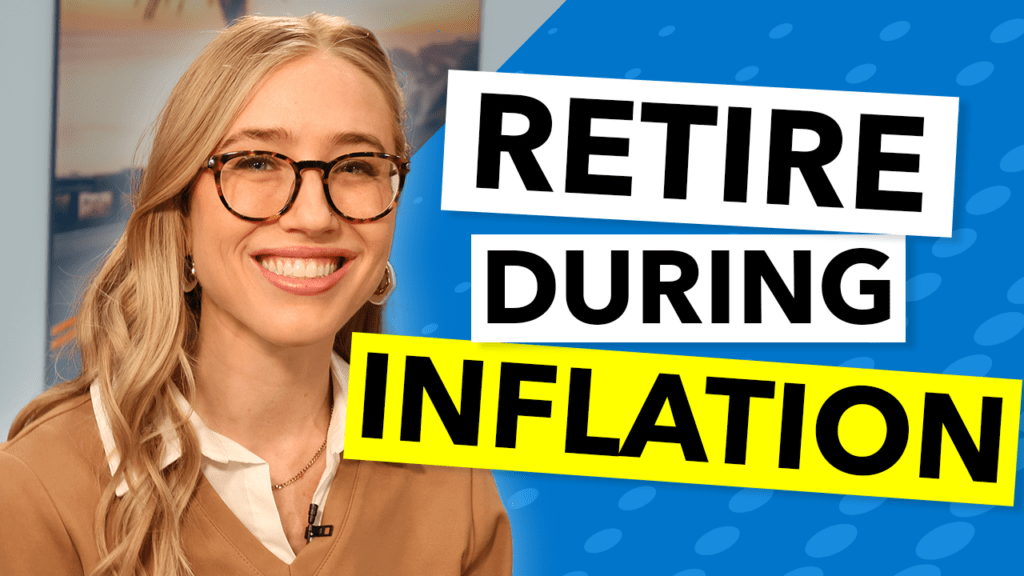Discover simple yet effective tax strategies for retirement.
– Understanding the massive scope of the U.S. tax code and its implications on personal finance.
– Explore the concept of tax loss harvesting and how it can reduce your tax bill.
– Unravel the mysteries of Roth accounts, including contributions, growth, and distributions.
– Learn about Net Unrealized Appreciation and how it can optimize your retirement funds.
–––––––––––––––––––––––––––––––––––––––––––––––––––––––––––––––––––––––––––––––––––––––––––––
TRANSCRIPT
Navigating the labyrinth of U.S. tax laws can be a daunting task, with the tax code consisting of about 75,000 pages of regulations and guidelines. However, understanding and applying the right tax strategies can significantly enhance your retirement income. Retirement Planners Loren Merkle and Chawn Honkomp simplify the complexities and help you optimize your tax savings during retirement.
The Power of Tax-Loss Harvesting
Molly Nelson [00:02:52]:
So, we want to take some of these tax strategies and make them simple. And of course, like a lot of the stuff in the financial world, even the names of these strategies are somewhat complicated, or at least goofy. The first one we want to talk about is tax-loss harvesting. And of course, you’re a farm kid, you grew up in a rural area. The harvesting part of this is kind of just funny. The name alone kind of makes me chuckle.
Loren Merkle [00:03:13]:
Yeah, it sure does. But we can make it easy. And in fact, we have an example to make tax-loss harvesting easy. It’s probably one of the most overlooked tax planning strategies. And in part because of the complexities, there’s not a lot of individual investors that incorporate tax loss harvesting strategies. Not even a lot of advisors incorporate these strategies. But we will make it simple. This is something that we do for the families and individuals that we serve.
Loren Merkle [00:03:38]:
But first, what is tax-loss harvesting tax law within your portfolio? Inevitably, at any point in time, you probably have some gains in your portfolio. You might also have some losses in your portfolio. So, tax-loss harvesting is simply using the losses that you must offset the games to reduce, or in some cases maybe even eliminate your tax bill for that particular year. So, let’s give you a specific strategy or example of how this could work. Let’s say in your portfolio you have tech stocks. These are the high-flying tech stocks. They’ve done really well. So, you have experienced gains in your tech stocks, but then you have your health care stocks that haven’t fared so well.
Loren Merkle [00:04:24]:
Now you’re looking at your tech stocks flying high, your health care stocks depreciated, and you’re saying, whoa, maybe I’m not as diversified as what I should be. I need to take some profits off the table with the tech stocks and then realign those proceeds to diversify, re-diversify your portfolio to make sure you’re not taking any more risk than what you want to take. So, what you do is you sell a portion of your tech stocks, and you realize $20,000 of gain based on the sales of your tech stocks. Now, you have a couple of options. Do you tax loss harvest or do you not? If you don’t tax loss harvests, then you just simply realize the $20,000 of capital gains and you’re going to pay capital gains taxes on it. Most people are going to pay somewhere between 15% to 20% based on the taxable income you have for that year. So based on $20,000 of gain, maybe three to $4,000 of tax in that year based on the capital gain sales.
Loren Merkle [00:05:24]:
Or option number two is you can engage in tax loss harvesting, which means you’re selling a portion of your health care stocks, realizing in this case, $20,000 of loss, and that $20,000 of loss is going to offset the $20,000 of gain that you had in the tech stocks, which means you’re going to have $0 a gain, which means your capital gain tax is going to be zero based on those transactions that you had with the tech and the health care. So, in this scenario, you are saving by engaging in tax-loss harvesting anywhere between three to $4,000 of capital gains. Now, I know what you’re thinking. You’re saying, Loren, I’ve always been told that how we make money in investing is we buy low, we sell high. That’s correct. Loren, you’re telling me we should actually sell low some of these health care stocks? And in this strategy, that can be a valuable thing, especially when we’re looking to save money on taxes. And here’s the deal.
Loren Merkle [00:06:28]:
You might like some of those health care stocks. You might really like some of those health care stocks, and they only happen to be down because the health care sector is down. If you sell those and you use those to offset the gains that you have on the tech side, what you need to do, or what you can do is wait 31 days, and then you can repurchase those same exact stocks if you want to. And that strategy still works. If you repurchase those stocks or like stocks within that 30-day period of time, then you cannot use the tax-loss harvesting strategy and offset the gain. So, you have to be careful. There are many complexities when engaging in tax-loss harvesting, which is often why this strategy is not used. But it can be a substantial benefit in tax savings.
Molly Nelson [00:07:15]:
That was the best explanation of tax loss harvesting. I’ve ever seen. So nice work. You were up for the challenge of making it simple. There are a couple of clarifications, though. So, let’s say some people watching that probably totally tracked with them made perfect sense. Other people, maybe a new concept. I think the takeaway, Chawn, is that whether you understand the nuances of it or not, if you’re not working with someone who’s not at least proposing this to you, they may not be looking out for your long-term tax plan in retirement.
Chawn Honkomp [00:07:39]:
This is not an everyday term that people use outside of work. I’m fairly confident that phrase has never come up when hanging out with my family and friends. So, this isn’t something that you do on a daily basis. This isn’t going to be something that you’re thinking about. So, tax loss harvesting, again, you may not know what that means and how to apply it. Like you touched on, Loren. So maybe you have an advisor, maybe they will help you make these investment decisions, but maybe they’ve never talked to you about this, and that’s okay. That just might not be what, that might not be what they focus on.
Chawn Honkomp [00:08:10]:
Not all advisors do the same thing. And with us, one of the areas that we focus on being the tax plan, this is a phrase that comes up daily, or at least weekly within our offices, because we’re talking about that, we’re looking at the markets. We’ve got to identify the right times to do it, and we’ve got to know the right types of accounts and the balances that are, that can be a part of tax loss harvesting.
Molly Nelson [00:08:30]:
And Loren, you did just this in 2022 with a lot of the families and individuals we serve.
Loren Merkle [00:08:35]:
When the markets go down, this is a really good opportunity to do something exactly like tax-loss harvesting. So, yes, in 2022, the markets were down. The NSDAQ was down 34%, the S&P close to 20%. Almost everybody had losses in their portfolio if they had stocks. What an opportunity that could present to you to actually have a strategy in place to take advantage of the market discounts. We know the markets go in cycles. Every five or six years we go through a recession. You’re going to have many opportunities to employ strategies like this when we go through these types of markets, even over the course of your retirement.
Loren Merkle [00:09:12]:
Now, one of the complexities of that type of strategy is this can only take place in non-IRA, non-employer accounts. So a brokerage account. So, with your IRA money, this doesn’t work. Of course, you can buy and sell, you can realize the losses and gains, but you can’t offset from a tax standpoint. So your brokerage account is, is the primary account where you can employ something like this. But I can tell you in that example, just by offsetting $20,000 a gain, three to $4,000 of tax savings, you extrapolate that out over a 20-to-25-year retirement time horizon that can add up to some real, real money. And that’s why we say one of the biggest opportunities that you have is to save on your retirement tax bill and increase your spendable income is engaging.
Molly Nelson [00:09:58]:
In tax planning, especially if those capital gains tax rates change. I know where there’s always talk of tax rates changing, and more of that money may even be taxable in the future. So more savings opportunities if the tax rates do change.
Loren Merkle [00:10:10]:
Yeah, more opportunity. And it could change the strategy, because there’s a lot of laws that go into that one particular strategy. Any of those changes could impact how we actually engage in that type of strategy and to what degree.
Molly Nelson [00:10:23]:
Yeah, they’ll probably add a few more pages to that tax code.
Loren Merkle [00:10:25]:
Absolutely. It only goes one way.
Leveraging Roth IRAs for Tax-Free Growth
Molly Nelson [00:19:51]:
Welcome back to Retiring Today, the challenge is tax strategies made simple way to win over tax lost harvesting. Did a great job with that in the first segment. Our next one is Roth or Roth conversions or Roth Ira. And again, these names. Chawn, what does the word Roth even mean?
Chawn Honkomp [00:20:06]:
Yeah, Roth. There’s a lot of confusion when it comes to Roth balances, and the word Roth really doesn’t stand for anything in the eyes of the IRS. The Roth comes from the name of a person. There was a senator William Roth from Delaware that. He’s the one that started talking about these different savings opportunities. He’s the one that created the Roth accounts, and that’s really what the Roth means.
Molly Nelson [00:20:24]:
Okay, so let’s. We know now where the name came from. I appreciate the history lesson there. What is a Roth? How does it work?
Chawn Honkomp [00:20:31]:
Yeah, Roth is an after-tax type of savings account. What you’re most familiar with is probably the pre-tax. So, think traditional 401(k) or traditional IRA, where Roth is just the opposite. You’re going to take after tax money, put it into a Roth. And the big reason why we love the Roth account so much is that you’re going to get tax deferred growth. And then even when you take money out of a Roth in the future, you’re never going to pay taxes on that again. So, you know that every single dollar that’s in a Roth account, you get to keep 100% of that dollar, and you get to spend 100% of that dollar in your retirement journey.
Molly Nelson [00:21:06]:
Okay, so you guys remember the 75,000 pages we talked about? There are some complications, or what should say, some nuances, some rules to the Roth. Let’s make sure we make those simple and make sure people understand.
Loren Merkle [00:21:18]:
One of the benefits of the Roth is you can literally invest in just about anything you want to. So if you have your Roth at a bank, you can invest in the bank products, whether it’s a savings account, a CD, whatever the bank offers you. If you have your Roth at a brokerage account, you can literally invest in stocks, bonds, ETF’s, just about anything you want to from the other investment categories, and then from a distribution standpoint, it’s a little bit more flexible as well, where any of the money that you contribute to the Roth you can take out when you want to. And you don’t have to pay taxes on that because it’s already been taxed. You also don’t have penalties on that amount that you contributed to it. However, the earnings on it, the earnings needs to stay underneath of there until at least age 59 and a half in order to not pay taxes on the earnings and not be penalized on the distribution from the earnings. So some of the legalities of some of the laws that you have to file with the Roth are different than these other retirement savings, which means we have to be knowledgeable about how to use them and what kind of strategies we can incorporate when we’re talking about the Roth.
Chawn Honkomp [00:22:23]:
Yeah, I mean, there’s phase out limits, there’s contribution limits. I mean, I like that you talked about the investment strategies, because the question we get a lot from you is, well, what kind of performance or what kind of return does the Roth dot? And that’s where there’s some of the misinformation. It’s not the type of investment at all. It’s simply the type of account. And then another thing we hear all the time is, well, I’m age 60. I don’t have any Roth. Is it too late? I know you’ve heard that plenty of times. And the answer is, it’s never too late.
Chawn Honkomp [00:22:48]:
There are many ways to get money into Roth accounts. There’s the contributions, which you have to be aware of those limits, and the phase outs. And then there’s Roth conversions, which is a big part of the tax planning.
Strategic Use of Net Unrealized Appreciation (NUA)
Molly Nelson [00:22:57]:
And I know that both of you could talk about Roth for a long time because there are so many benefits. But we’ve got one more tax rule that we want to make. Simple, simple, that is, and it’s net unrealized appreciation. Another one of those titles that just rolls right off the top, but can.
Loren Merkle [00:23:12]:
Represent a huge tax savings opportunity. This relates to company sponsored plans, traditionally a 401(k) plan that has employer stock underneath of it. So your 401(k) plan at work, if you have employer stock, then potentially you have the ability to take advantage of net unrealized depreciation. What that means is, let’s say you have $20,000 of value of employer stock. You can, if your plan allows it, roll, take that stock out to a brokerage account. So a non IRA account, which means you’re going to pay taxes on the cost basis of that stock so if you invested, if you invested $10,000 into that employer stock, you’ll pay ordinary income tax on that $10,000, and then the rest of that company stock you can allow to continue to grow. Or eventually, when you sell it, you’re going to pay a capital gains rate, which could be 0%, 15% or 20% based on your taxable income. So it does represent a potential tax savings.
Loren Merkle [00:24:15]:
But there are a lot of if thens a lot of rules that are associated with it. So you have to make sure you do it really carefully.
Molly Nelson [00:24:21]:
And what’s the advantage of putting it into a brokerage account versus keeping it where it’s at?
Chawn Honkomp [00:24:25]:
Yeah, the advantage is, again, to pay these lower tax rates. The capital gains tax rates that you pay in any given year is always going to be less than what your ordinary income tax is going to be. So again, a unique opportunity isn’t out there for everybody. Certainly, again, not common, everyday language. I don’t talk about net unrealized appreciation with my or anything like that. So, it’s not an everyday thing. So, you want to be aware of it. To identify, again, one of the biggest goals that we have, maximize all the assets that anybody has in retirement, help you pay less taxes throughout your retirement journey.
Chawn Honkomp [00:24:55]:
And this is another great example of something we need to be aware of so we can make the best decisions. Yeah.
Molly Nelson [00:24:59]:
And I think the more you know, the better. Right. Cause you can be looking for these things and you’re hoping too, that the person you’re working for is bringing that up to you. So, one way to find out about more strategies that you could be asking about is the online Journey to Retirement Workshop.
Loren Merkle [00:25:12]:
Where we talk about a lot of strategies in all six pillars. And we do it through the eyes of John and Sue, our hypothetical couple, where we show the specific goals that John and Sue have, which are probably going to be different than yours, but then we apply strategies to how they’re going to accomplish these goals, which those strategies you can definitely take away and use to help you accomplish your goals. In this workshop. It’s convenient, it’s complimentary, it doesn’t cost you anything. You can view this at work, you can view it at home, you can view it on the road, wherever you are that you have Internet and a computer or a device, you can take in this information to help you on your mission to have the best retirement you can.
Molly Nelson [00:25:49]:
Yet in that online journey retirement workshop, you give a really powerful example about taxes and legacy planning that really stretches what starts off as a modest amount of money and turns it into a whole lot of money that Jon and Sue get to leave to their kids and grandkids.
Loren Merkle [00:26:03]:
One of Jon and Sue’s goals is to leave a meaningful legacy to their two kids. And we walk you through a strategy that John and Sue decided to use. We call it the IRA relocation strategy. And what it does is it decreases their tax bill on the IRA money that they’ve never paid taxes before. And it also magnifies how much they can leave by almost three times how much they can leave to their kids. And the best part is they leave this money tax free to their kids.
Molly Nelson [00:26:32]:
Tax free. That’s the best kind of money you can. Meet John and Sue at RetireWithMerkle.com sign up for a time and date that works for you and get on your journey to retirement. This is Retiring Today, and we thank you for watching.
–––
We are an independent financial services firm helping individuals create retirement strategies using a variety of investment and insurance products to custom suit their needs and objectives. The content and examples shared are for informational purposes only and should not be construed as investment advice or serve as the sole basis for making financial decisions. Individuals are encouraged to consult with a qualified professional before making any decisions about their personal financial situation. Our firm is not permitted to offer legal advice. Investment Advisory Services offered through Elite Retirement Planning, LLC. Insurance Services offered through MRP Insurance, LLC.
